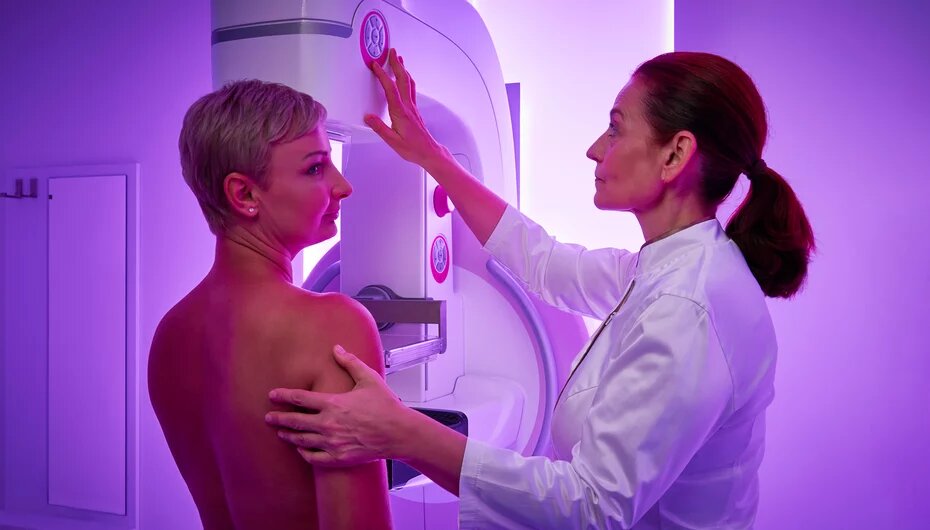Laboratory testing
A complete laboratory test, i.e., a blood and urine test, is needed before any operation. This test’s results provide information on the body's metabolic processes, the functioning of the cellular systems, the organs (liver and kidney function), the immune system, and whether we are carrying bacteria or viruses that can cause infections.
Ultrasound examination: abdominal and breast ultrasounds, depending on type of surgery
An ultrasound examination of the breasts is required for our breast augmentation patients under the age of 30, because for this age group ultrasound can help to detect various breast lesions, such as a fluid-containing cyst. The ultrasound specialist puts a gel on the area in question, then gently moves the ultrasound probe over the breasts. With the help of the high-resolution probe, it is possible to assess the milk ducts’ dilatations and the mammary glands’ inflammatory processes. The test takes about 20-30 minutes, and the result is immediately visible on the ultrasound monitor. However, for the over-30s an ultrasound examination alone is not sufficient for an accurate diagnosis. For this reason, a mammography examination (mammogram) is also needed, which differs from traditional x-rays in its physical parameters and photographic techniques and can detect subtle structural abnormalities in the soft tissues. For the mammography, the breast is placed on an x-ray plate. The assistant then gently compresses the breast with another plate. Two recordings of each breast are taken separately. No waiting is required for the mammography results at Dr. Rose Private Hospital either. Thanks to our modern digital device, the result is immediately visible to our radiologist. No preparation is required from the patient, however during the recording the machine may compress the breasts and depending on individual sensitivity this can be accompanied by an uncomfortable feeling, but there is no need to be afraid of a mammography examination.
For the over-40s, in addition to these examinations, a chest x-ray is also mandatory. This is a basic imaging test that can help differentiate other diseases in a significant proportion of lung, pleural, heart and chest wall diseases.
Abdominal ultrasound is required prior to tummy-tuck surgery, in which the abdominal organs, such as the liver, bile ducts and gallbladder, pancreas, spleen, abdominal aorta and branches, abdominal lymph nodes, kidneys and adrenal glands, bladder, and the female and male genitals in the pelvis are examined. During the abdominal ultrasound examination, the patient lies on their back and, with the area disrobed, we apply a gel to the abdomen before pressing the ultrasound probe lightly on the skin so that our specialist can obtain an image of the various organs. A proper abdominal ultrasound examination can only be performed on an empty stomach, and we inform everyone about the preparation for the examination.
Mandatory ECG prior to any intervention with anesthetic
During the ECG examination, the patient should lie on their back. According to a specific color code, a metal electrode with self-adhesive paper or rubber band, is attached to the wrists and ankles. The skin surface in contact with the electrode is moistened with water or coated with a gel. The other end of the electrodes is connected to a device capable of processing the heart’s electrical signals. Depending on the ECG examination, 6 electrodes are also placed on the chest, the position of which is also anatomically predetermined. Calmness is important during an ECG examination because movement and speech affect the accuracy of the measurement. An ECG is used to examine the number of heartbeats per minute, their regularity, cardiac stimulation, electrical conduction and any associated problems, arrhythmias, and myocardial function, which the anesthesiologist must know prior to surgery.
Anesthesiology consultation
During this consultation, the anesthesiologist will thoroughly interview the patient about past and present illnesses, the medication used, any previous surgeries and any known drug sensitivities or allergies. This information is essential to select the optimal method of anesthesia and to assess and minimize the risk of surgery and anesthesia. If necessary, depending on the surgical procedure and the existing diseases, your anesthesiologist may arrange additional specialist examinations to achieve the best possible surgical outcome.
Before plastic surgery we also use these examinations to filter out any exclusionary reasons or risks to make sure that our patients are not only mentally but also physically ready for the desired intervention.
